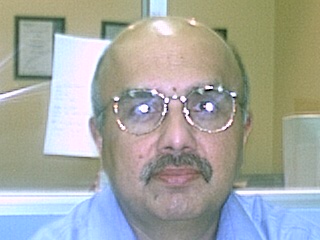 How did the Anglo-Indian originate? About 500 years ago after a millennium in the Dark Ages, a handful of courageous and determined explorers, driven by a thirst for power, glory and wealth, sailed from Europe to conquer the unknown. Commissioned by King Manuel 1 of Portugal, Captain-Major Vasco-da-Gama sailed from Cape St Vincent on July 8, 1497, with a fleet of four ships and 170 officers and men on a 43,200 km round voyage to India via the Cape of Good Hope. Ten months later they landed on the coconut palm-fringed Malabar coast, about 80 km north of the port of Calicut on the south west of India. Pedro Alvares Cabral, who followed in da Gama's footsteps, set up a trading station in Calicut, but hostility from the local merchants forced him to the port of Cochin. He laid the foundation of Portuguese power in India. The Portuguese were followed by the Dutch, French and finally the British. The Portuguese married local people, the union resulting in the birth of a new community, which later came to be known as the Anglo-Indians. Like the Portuguese, the other Europeans also married local and the ranks of the Anglo-Indians grew. In 1911, when Charles Harding was viceroy of India, he officially recognised the use of the cognomen Anglo-Indian in describing the community. According to article 266 (2) of the Constitution of India, an Anglo-Indian is a person whose father or any of whose other male progenitors in the male line is, or was, of European descent but who is domiciled with the territory of India and is, or was, born within such territory of parents habitually resident therein and not established there for temporary purpose only. This small community was instrumental in enabling the British to rule the subcontinent. The Anglo-Indians were used to build and run the railways, set up and run the post and telegraphs and customs services, and served loyally and with distinction. But perhaps their greatest contribution was in the armed forces. During World War 1 about 8000 Anglo-Indians fought in Mesopotamia, East Africa, and in the European theatre. In World War II they fought at Dunkirk and flew in the battle of Britain. Later they featured in the India-China and India-Pakistan war. And they earned honours both in India and overseas. After India's independence from Britain in 1947, there was an exodus of Anglo-Indians to Canada and England. In the 60's it was an exodus to Australia. Most of the Anglo-Indians blended into the society of their adopted country. Anglo-Indians have made a great impact in all walks of life. Among the entertainers who have enthralled audiences worldwide and topped the pop charts are Tony Brent (real name Reginald Brentagne) who was born in Bombay; Cliff Richards (real name Harry Roger Webb) born in Lucknow; and Engelbert Humperdinck (real name Arnold George Dorsey) born in Madras. Wilson Jones won the world amateur billiards title twice, boosting India's image on the international sporting scene. The achievements of Anglo-Indians have been out of proportion with their relatively small numbers. Western Australia's remarkable hockey progress began with the arrival of top coaches and players in the late 40's and 50's. Among them were Fred Browne, Ival Meade, Ray Whiteside, Gordon Taylor, Cyril Carton, Ralph "Blazey, Pat Zansen and the gifted Merv Adams. Perhaps the greatest contribution was by the Pearce brothers - Cecil, Melville, Eric, Gordon and Julian. They migrated to Perth in 1947-48. Born in Jubbulpore, the brothers had their early education in Nagpur. They played for Australia from 1950-70. Mel, Eric and Gordon took park in the 1956 Olympics in Melbourne; Eric, Gordon and Julian in the 1960 Olympics in Rome, Eric and Julian the 1964 Olympics in Tokyo; Eric, Julian and Gordon in the 1968 Olympics in Mexico. Eric was the flag -bearer at the closing ceremony in Mexico. But the greatest honour came when he was inducted into the Australian Hall of Fame and WA Hall of Fame. Julian has also been inducted in the WA Hall of Fame. Gordon's outstanding leadership and service were recognised when he was appointed a member of the Order of Australia at the Australia Day awards. Professor Ken McPherson whose grandfather was an Anglo-Indian, has a PhD in Indian history from the Australian National University of Canberra. He says there has been a renaissance in the history and culture of the Anglo-Indian. There is an awakening to their roots, an assertiveness and a pride in their heritage, in short a new sense of identity. The Declase's were predominately from Kerala, South India, in the 1940's and 50's a family name synonomus in Quilon / Tangasseri. In the early 1970's the Declase's migrated to Australia - which is now their home! |